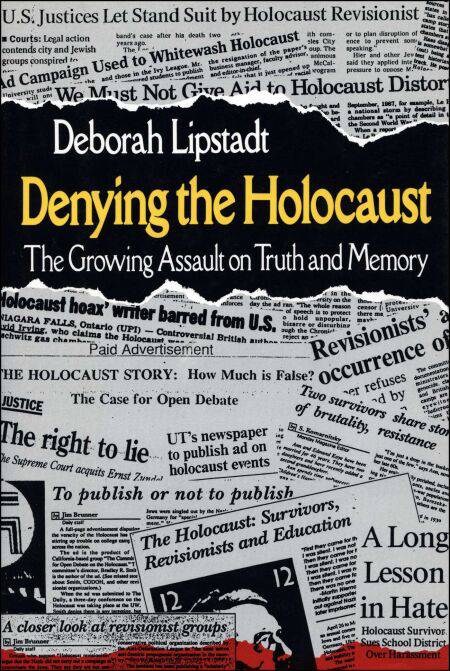
- Afhalen na 1 uur in een winkel met voorraad
- Gratis thuislevering in België vanaf € 30
- Ruim aanbod met 7 miljoen producten
- Afhalen na 1 uur in een winkel met voorraad
- Gratis thuislevering in België vanaf € 30
- Ruim aanbod met 7 miljoen producten
Zoeken
Denying the Holocaust E-BOOK
The Growing Assault on Truth and Memory
Deborah E. Lipstadt
E-book | Engels
€ 15,65
+ 15 punten
Omschrijving
The denial of the Holocaust has no more credibility than the assertion that the earth is flat. Yet there are those who insist that the death of six million Jews in Nazi concentration camps is nothing but a hoax perpetrated by a powerful Zionist conspiracy. Sixty years ago, such notions were the province of pseudohistorians who argued that Hitler never meant to kill the Jews, and that only a few hundred thousand died in the camps from disease; they also argued that the Allied bombings of Dresden and other cities were worse than any Nazi offense, and that the Germans were the “true victims” of World War II.
For years, those who made such claims were dismissed as harmless cranks operating on the lunatic fringe. But as time goes on, they have begun to gain a hearing in respectable arenas, and now, in the first full-scale history of Holocaust denial, Deborah Lipstadt shows how—despite tens of thousands of living witnesses and vast amounts of documentary evidence—this irrational idea not only has continued to gain adherents but has become an international movement, with organized chapters, “independent” research centers, and official publications that promote a “revisionist” view of recent history.
Lipstadt shows how Holocaust denial thrives in the current atmosphere of value-relativism, and argues that this chilling attack on the factual record not only threatens Jews but undermines the very tenets of objective scholarship that support our faith in historical knowledge. Thus the movement has an unsuspected power to dramatically alter the way that truth and meaning are transmitted from one generation to another.
For years, those who made such claims were dismissed as harmless cranks operating on the lunatic fringe. But as time goes on, they have begun to gain a hearing in respectable arenas, and now, in the first full-scale history of Holocaust denial, Deborah Lipstadt shows how—despite tens of thousands of living witnesses and vast amounts of documentary evidence—this irrational idea not only has continued to gain adherents but has become an international movement, with organized chapters, “independent” research centers, and official publications that promote a “revisionist” view of recent history.
Lipstadt shows how Holocaust denial thrives in the current atmosphere of value-relativism, and argues that this chilling attack on the factual record not only threatens Jews but undermines the very tenets of objective scholarship that support our faith in historical knowledge. Thus the movement has an unsuspected power to dramatically alter the way that truth and meaning are transmitted from one generation to another.
Specificaties
Betrokkenen
- Auteur(s):
- Uitgeverij:
Inhoud
- Aantal bladzijden:
- 288
- Taal:
- Engels
Eigenschappen
- Productcode (EAN):
- 9781476727486
- Verschijningsdatum:
- 17/12/2012
- Uitvoering:
- E-book
- Beveiligd met:
- Adobe DRM
- Formaat:
- ePub

Alleen bij Standaard Boekhandel
+ 15 punten op je klantenkaart van Standaard Boekhandel
Beoordelingen
We publiceren alleen reviews die voldoen aan de voorwaarden voor reviews. Bekijk onze voorwaarden voor reviews.







